Day Two At The Inverdoorn Game Reserve (Page Fourteen)
Up at 'em at 6:00 AM? Indeed, successful safari's require rising with the animals and visiting them early before the heat of the day sets in!
Upon leaving Inverdoorn we headed to Cape Town for the night and then off we go to London for our flight home.
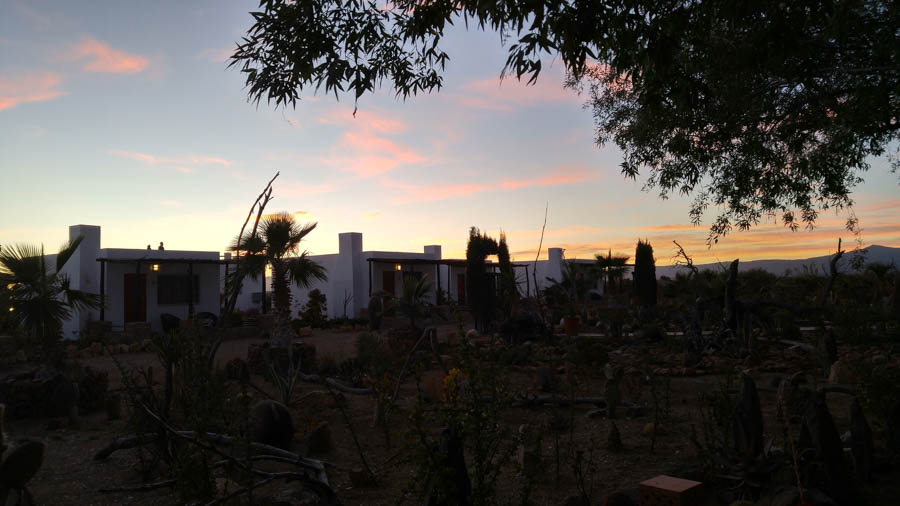
5:41 AM and we are up and ready to go!
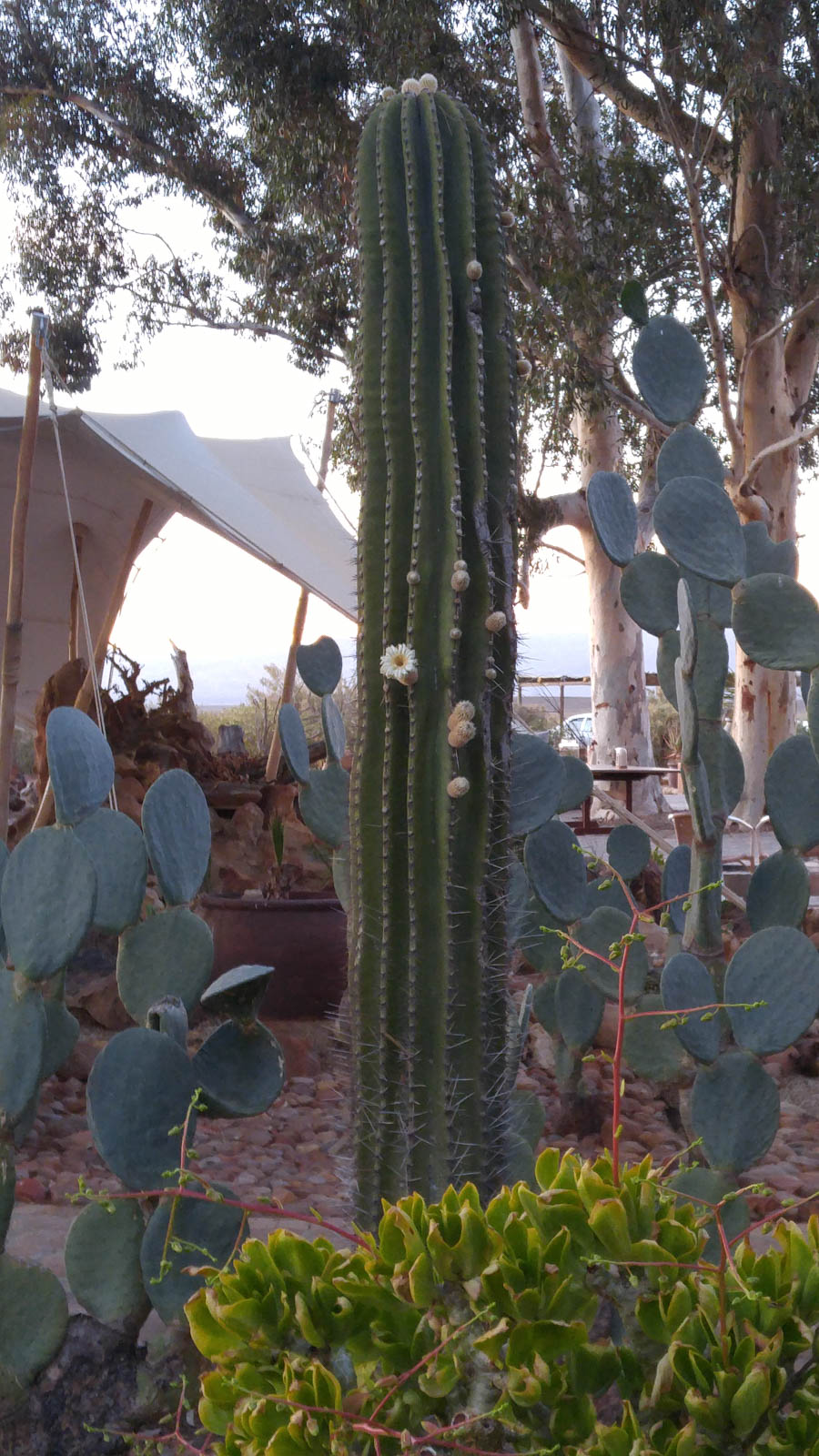
The quiet is deafening...
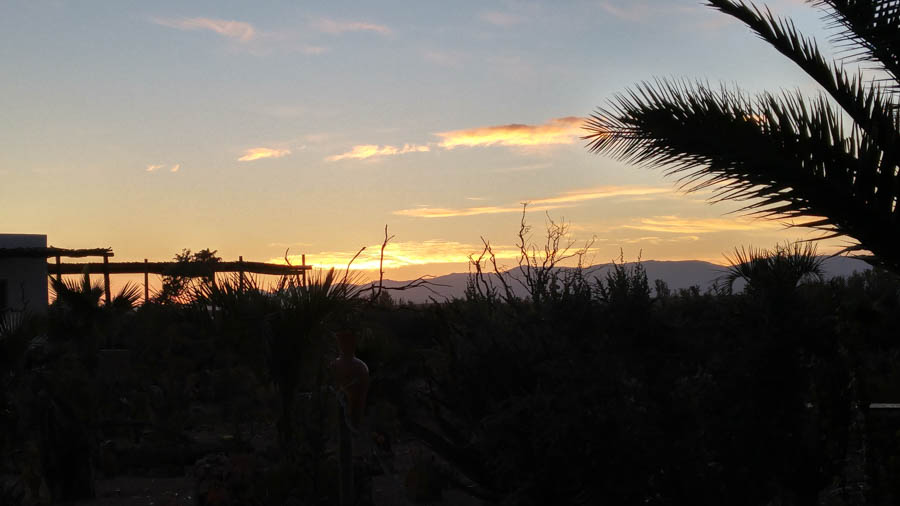
The sun is just rising and the day is golden!
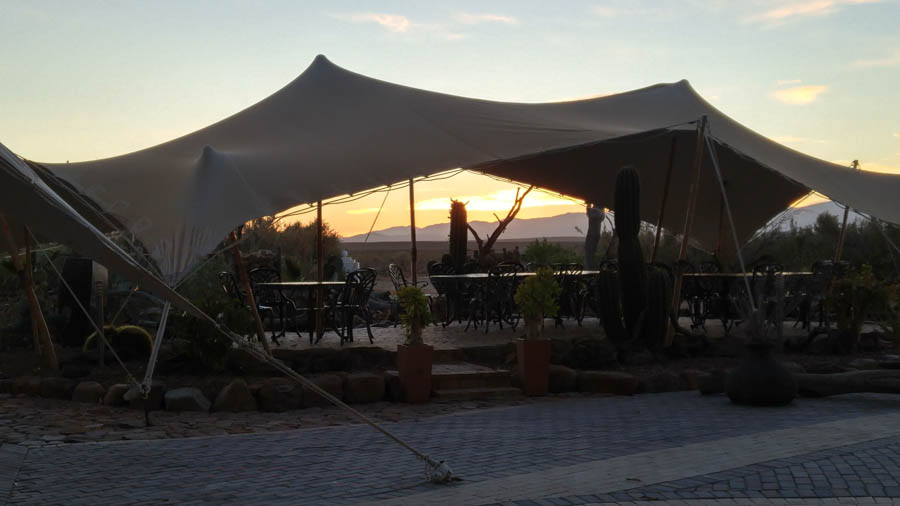
Tents are peaceful this morning
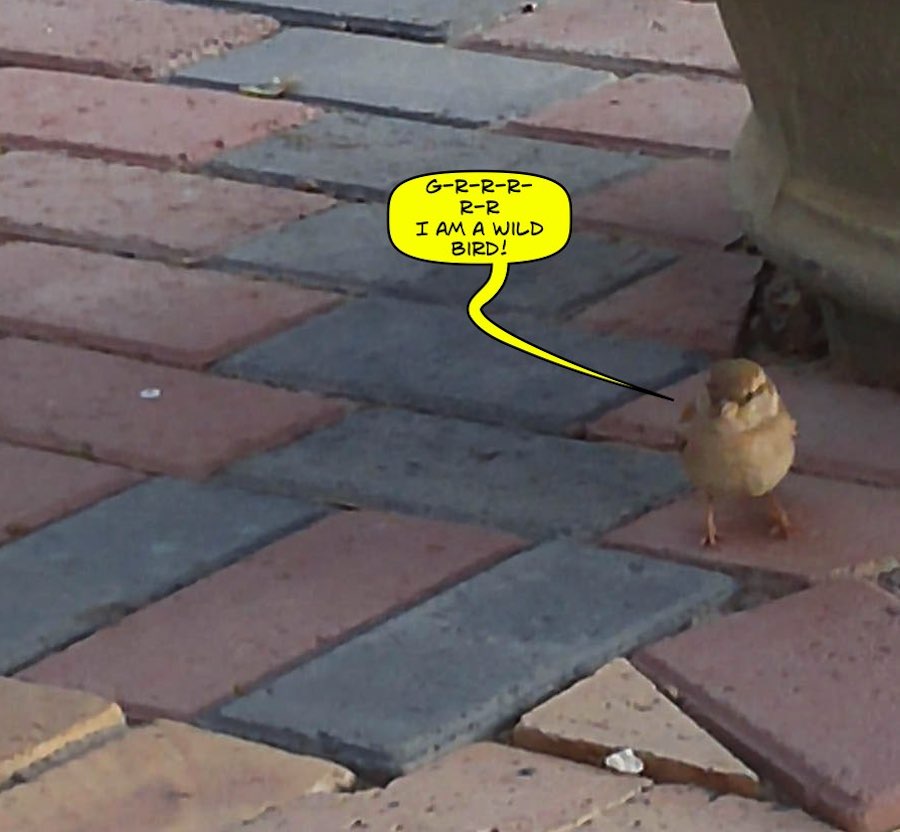
The first "wildlife" of the day!
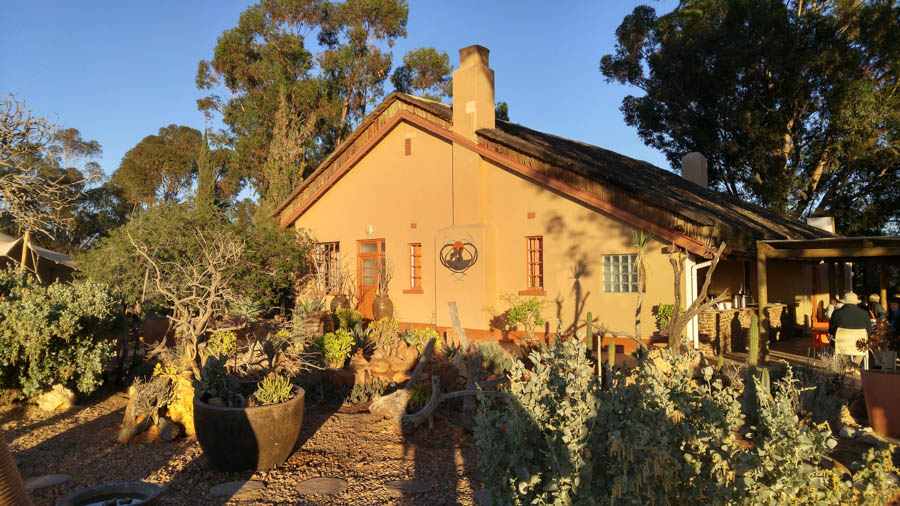
A quick walk and our transportation awaits
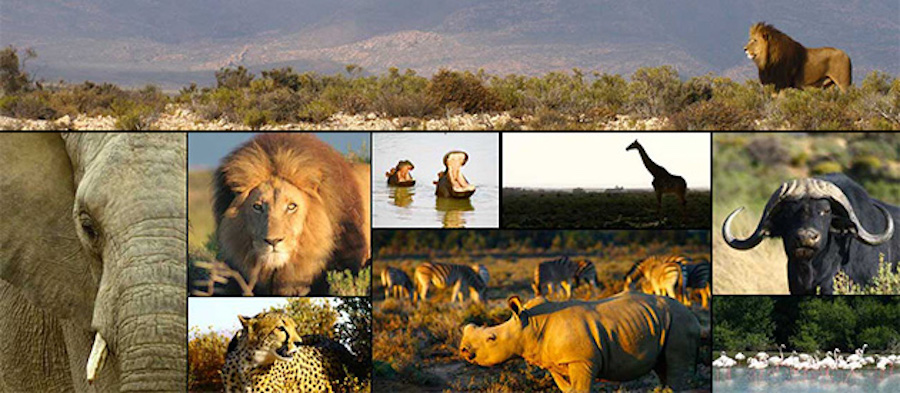
It begins.....
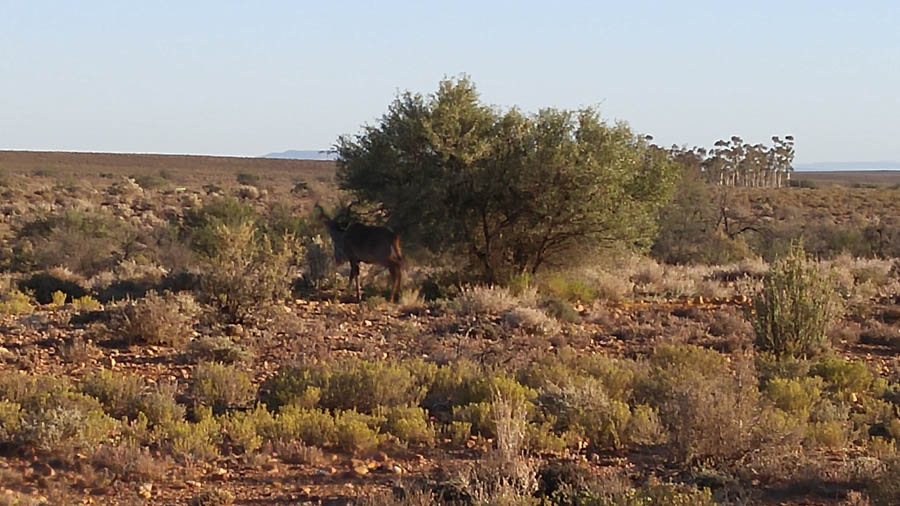
Must look careful with the long morning shadows
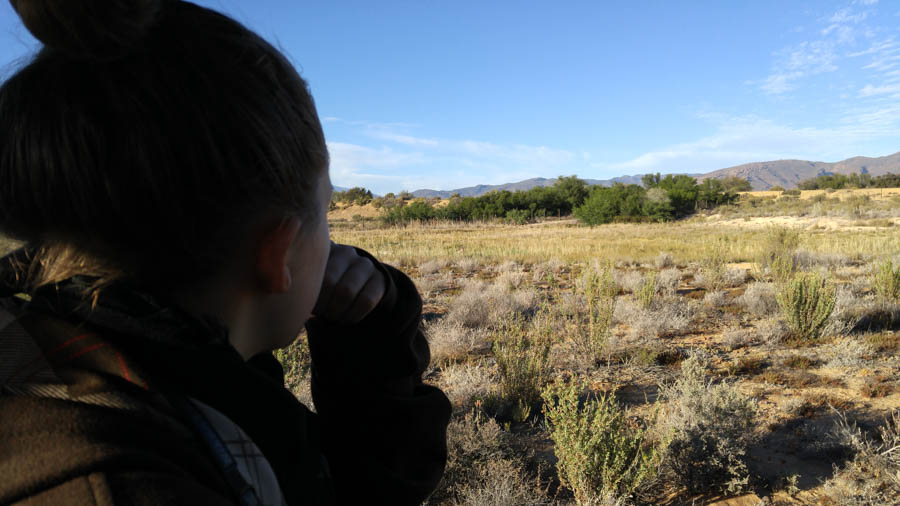
The lion sleeps... Must have full tummy... Could the riders again!
Did You Know? - They are rescued and they are fat. They are probably from a circus. To give them exercise, the staff puts their food in a different location each day so they have to move around. The females are also heavy because while they were in captivity they were given hormones. The lions are the only animals in this large enclosure. At one time the staff said they found a deer or antelope in the enclosure that they believe jumped the fence. The lions did not chase it and they cohabited together for awhile before the animal left

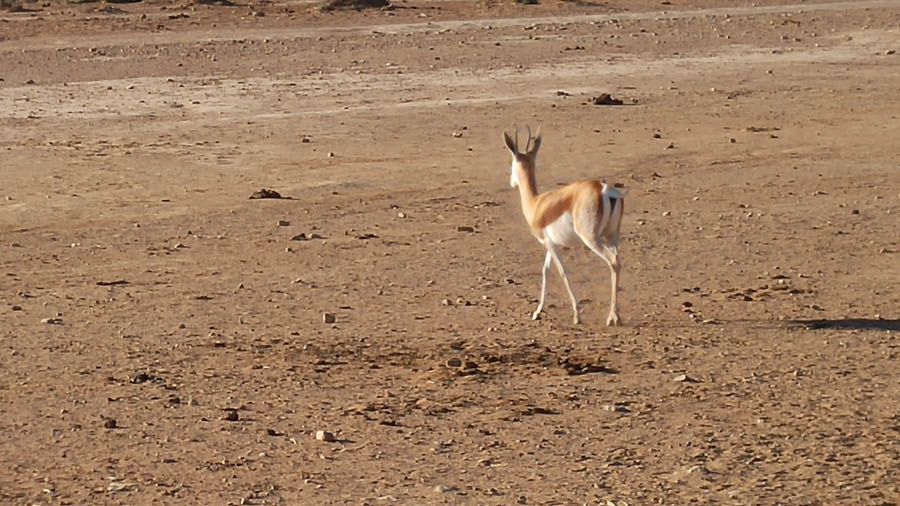
"I think I will be leaving now"

We continue to get pretty close to the action!
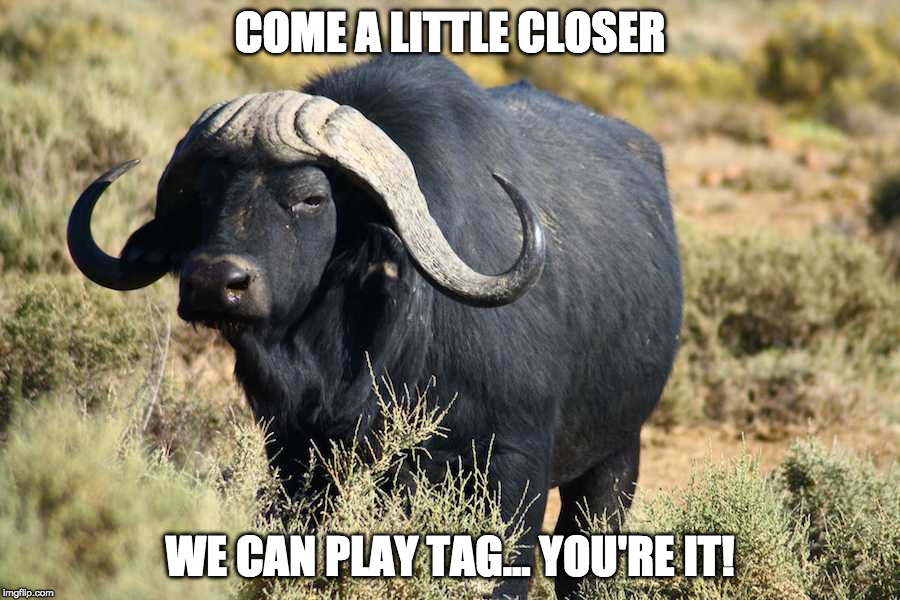

"Changed my mind... Too early for tag!"

When several begin to look at the vehicle, it might be time to back off
Note: The little one in the center is the one from the day before that was laying down. He is up for his first walk
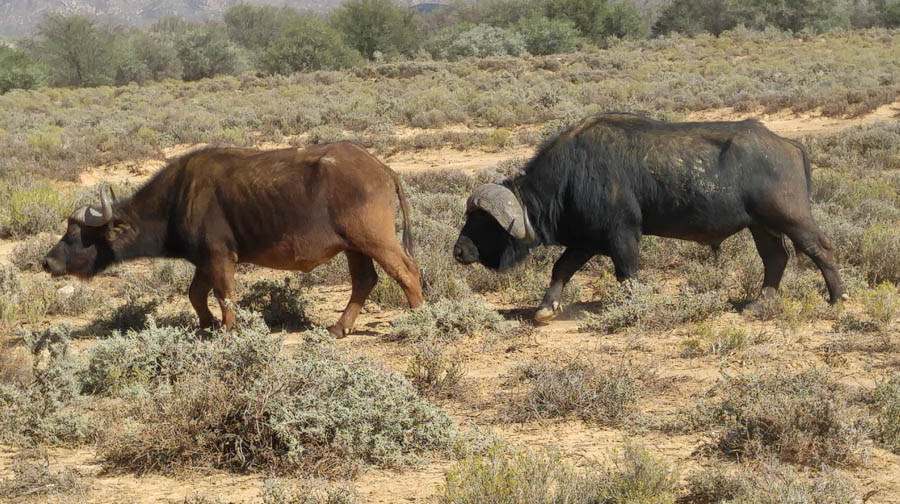
Playing follow the leader?
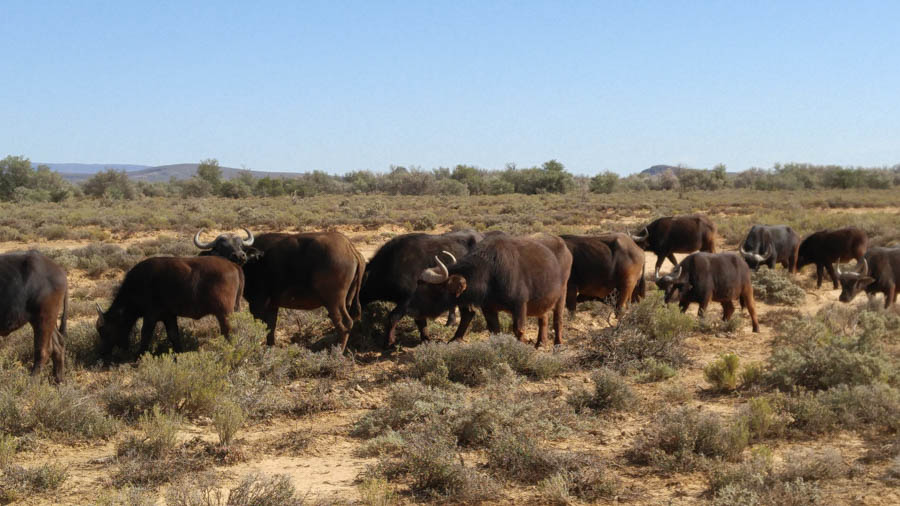
Lunchtime on the plains!
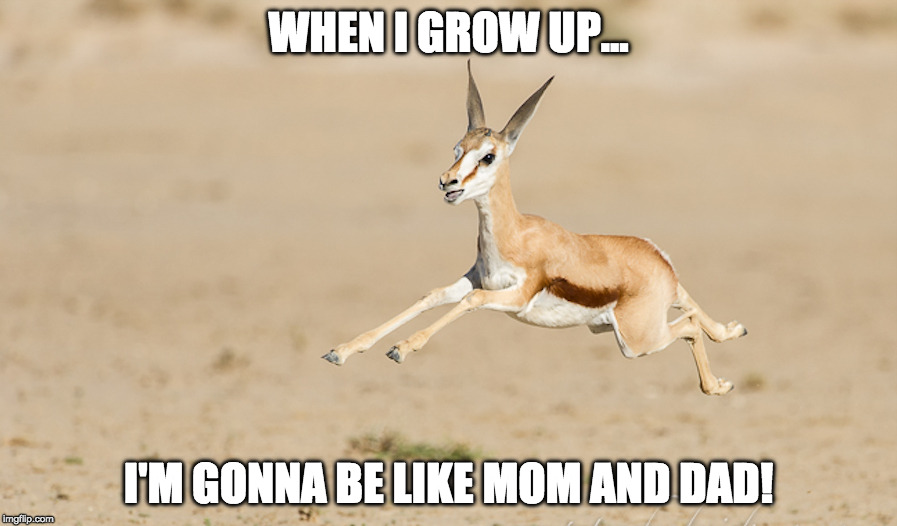
The Springboks can jump several feet into the air

Nature sure gave them the correct colors to wear!"
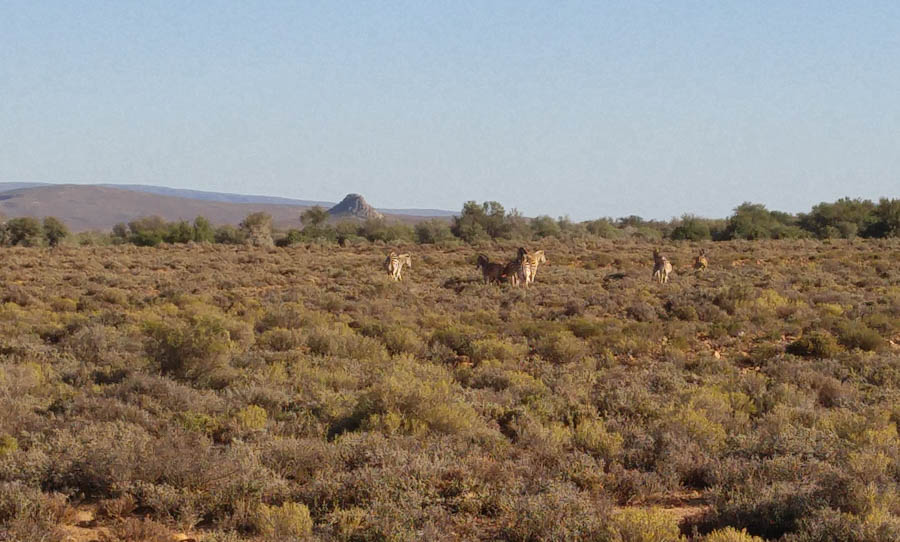
Mother Nature also gave the animals great eyesight!
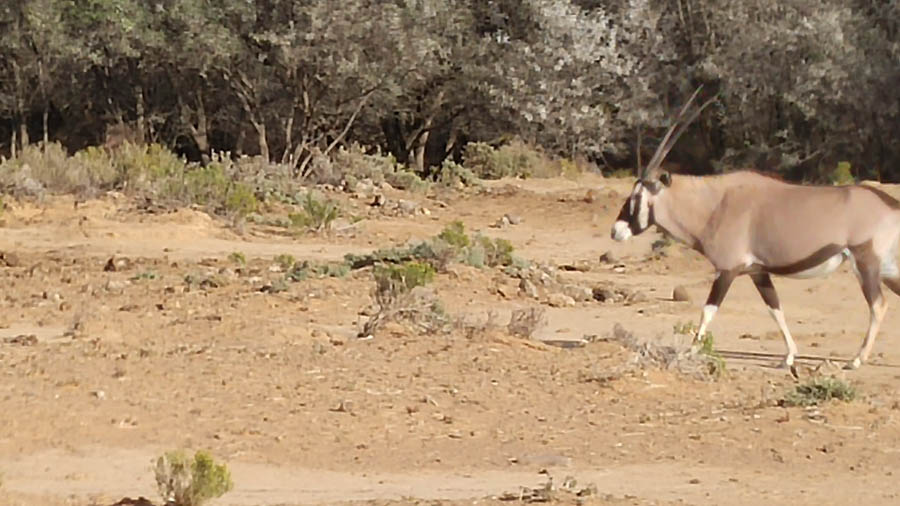
Just minding his own business
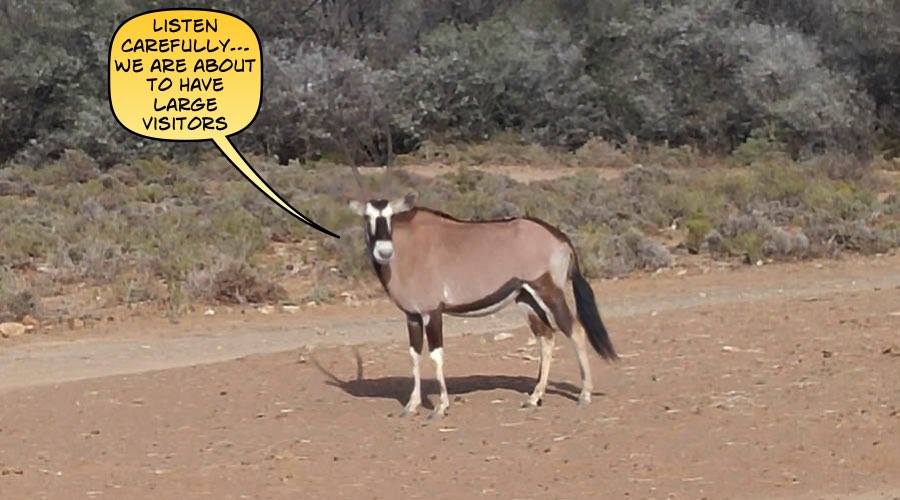
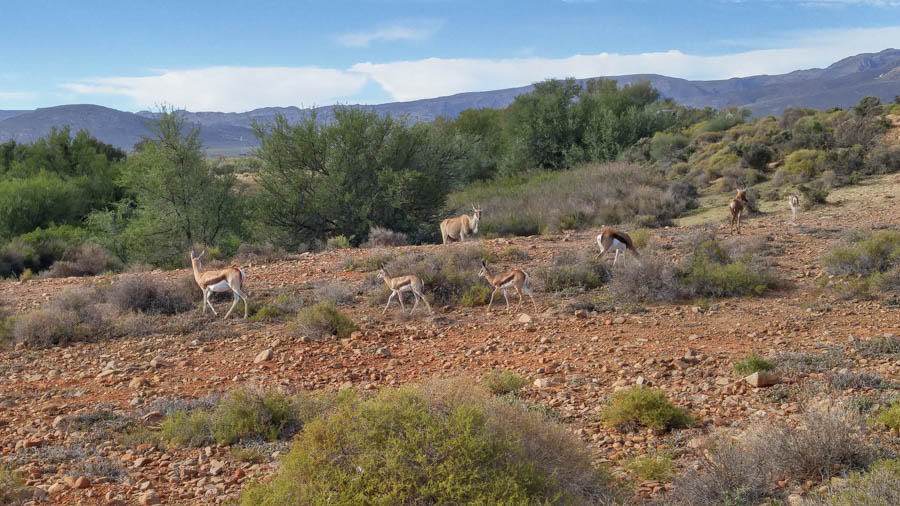
Suddenly a herd appears

They cast a suspicious eye our way
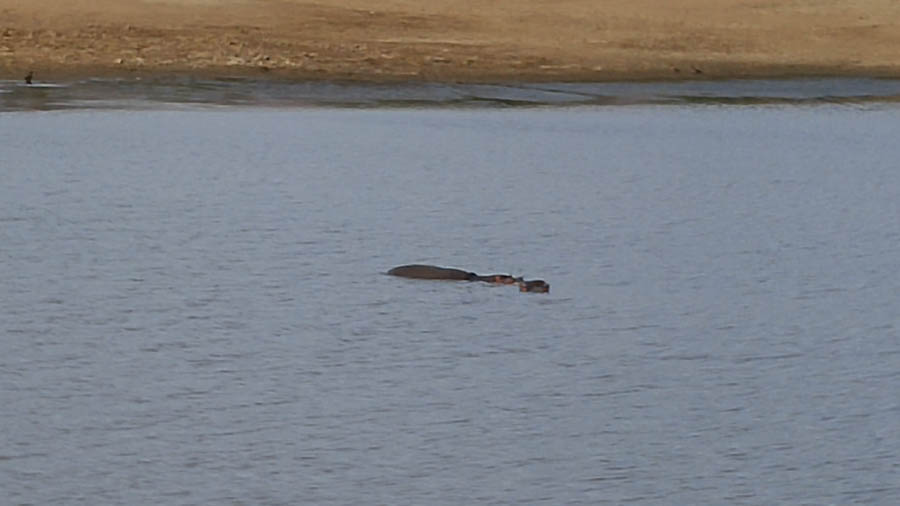
If the water begins to move, beware... Hippos are nearby!
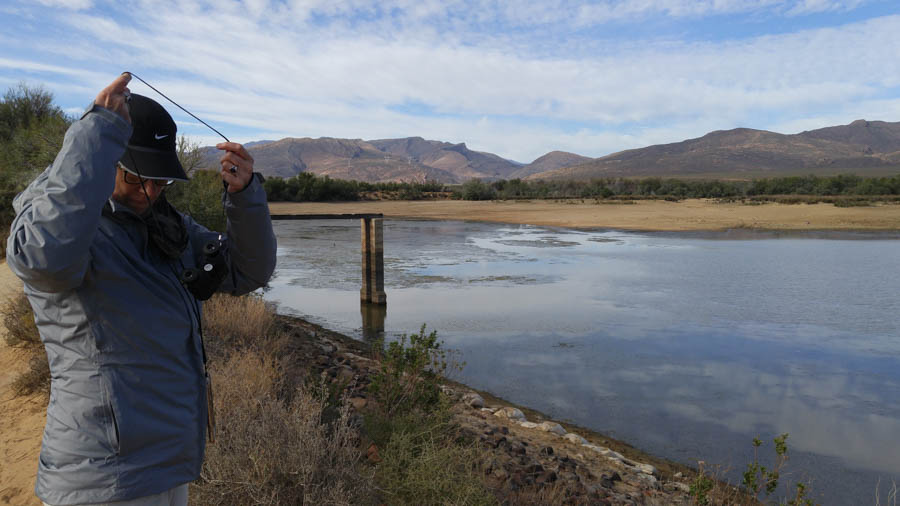
A brave soul...
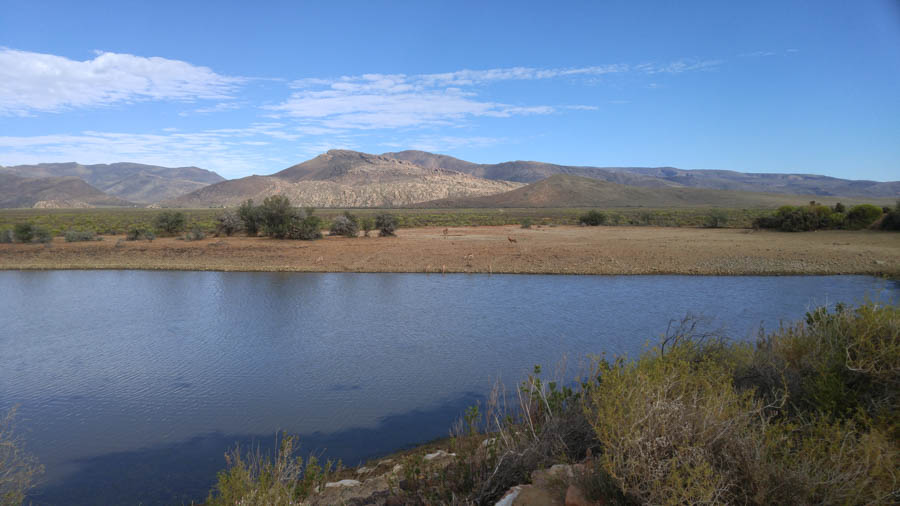
Look careful in the distance
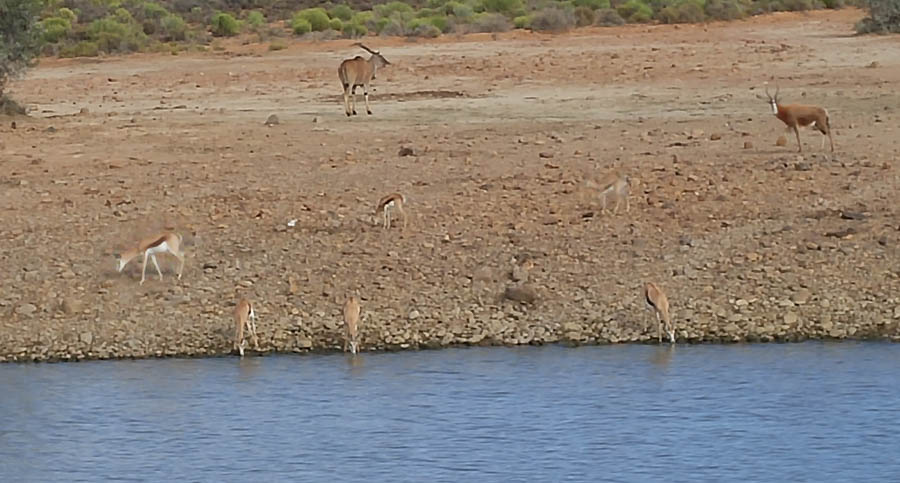
The watering hole is teaming with activity

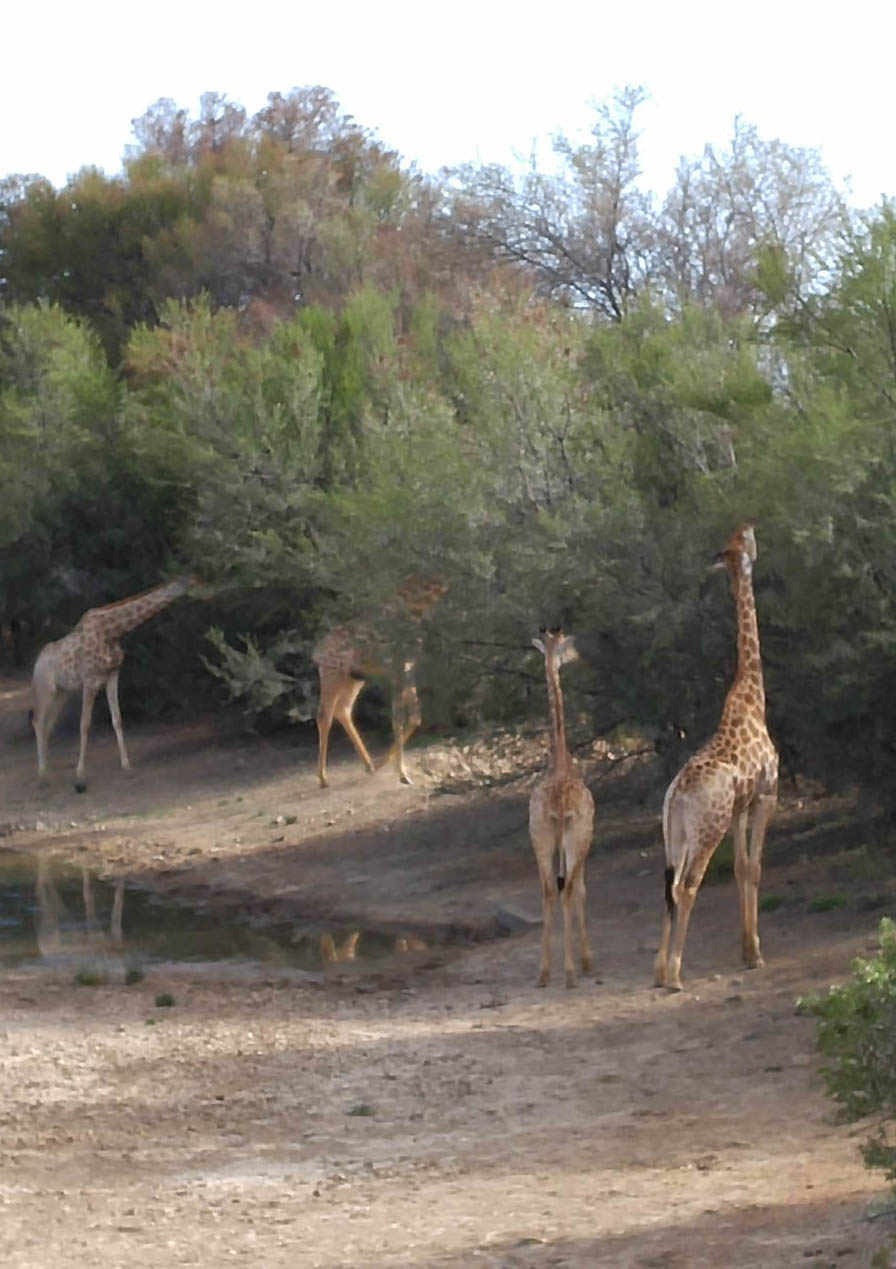
Near the waters edge are the best-est trees!
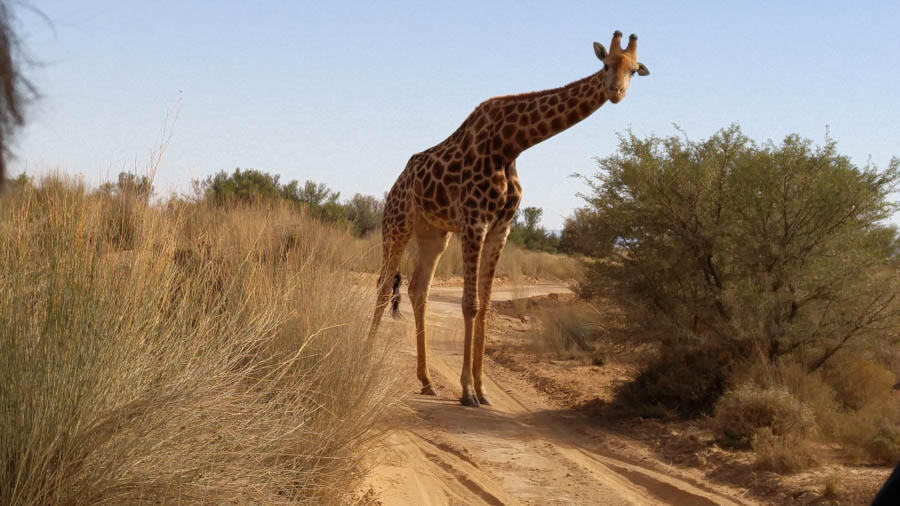
"I have the right of way"

We are so close!
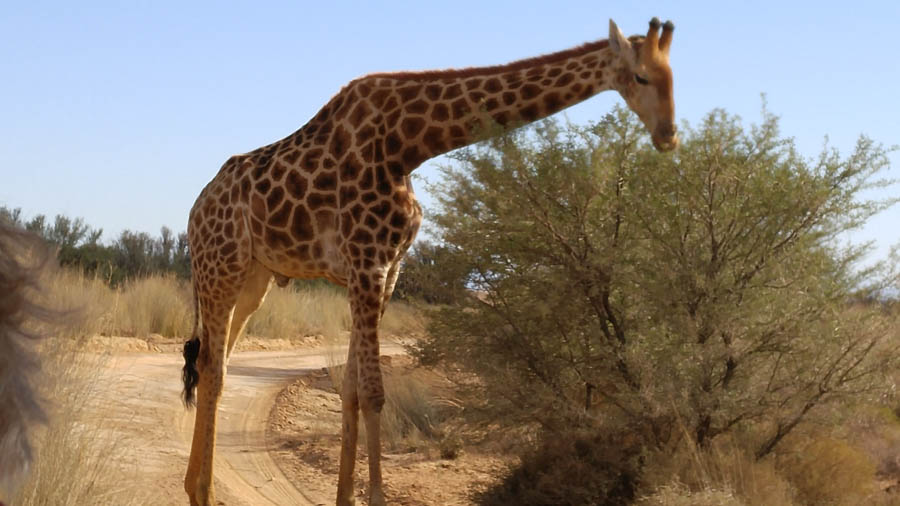
Hang on... I'll be done in a few minutes!
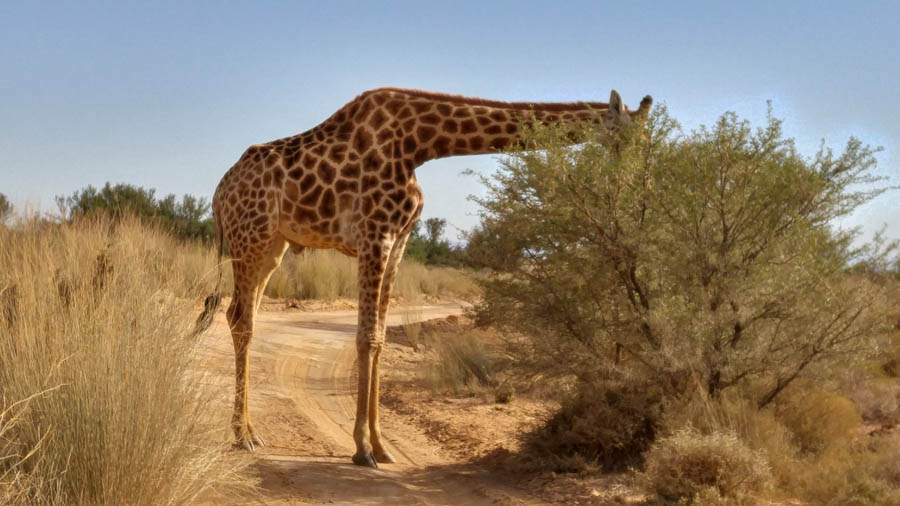
Munch munch munch

Their markings are perfect for this area!
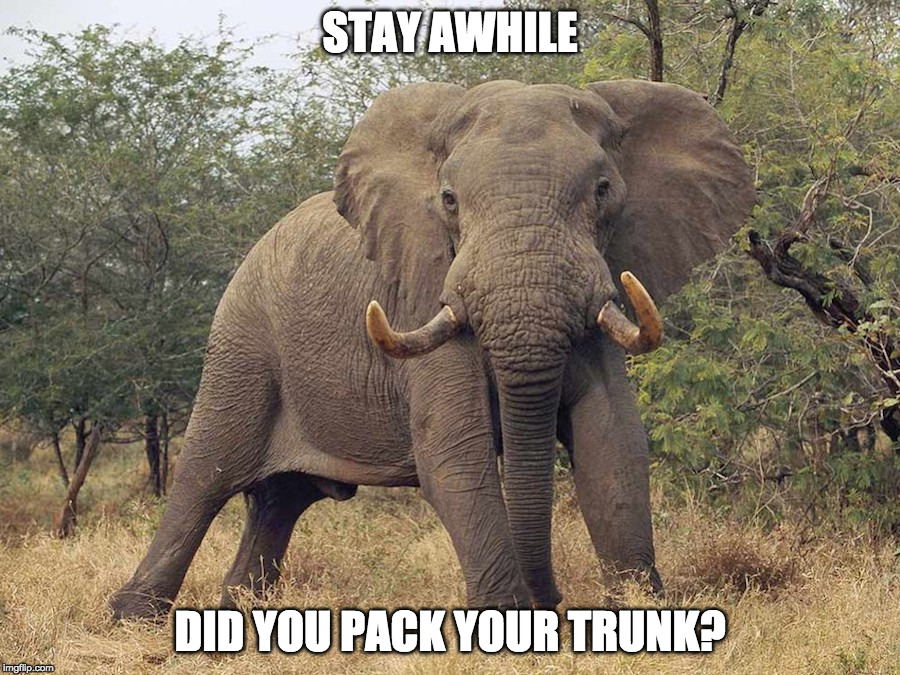
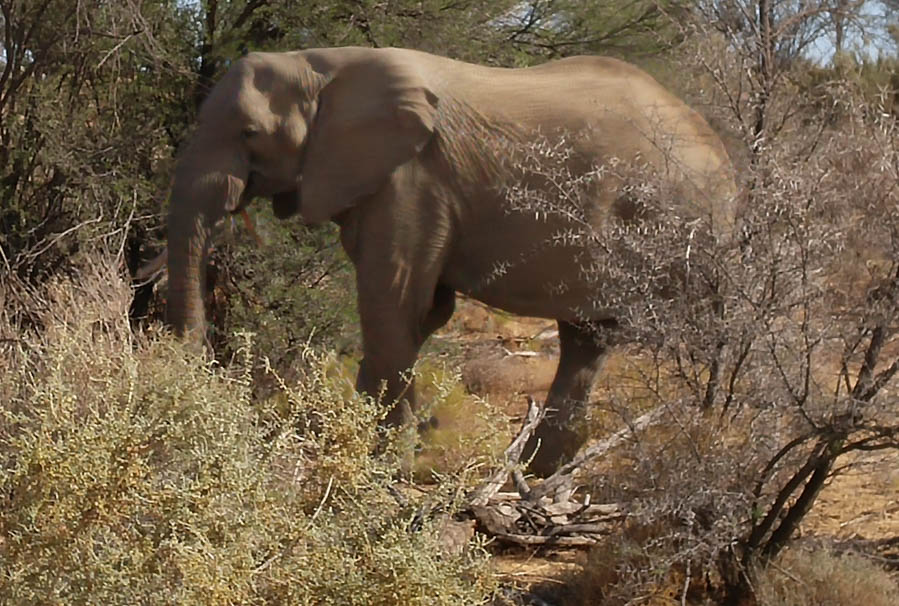
Looking for something
Did You Know?
Elephants stomp when they walk.
Elephants sleep standing up.
Sometimes baby elephants lie down to sleep.
Elephants bathe. Sometimes they spray dirt on themselves to get the parasites off. Sometimes they bathe in mud
Elephants live in herds.
They cool off by fanning their ears. This cools the blood in their ears. That blood goes to the rest of their body and cools off the elephant.
They poop 80 pounds in one day.

Just moving about the herd
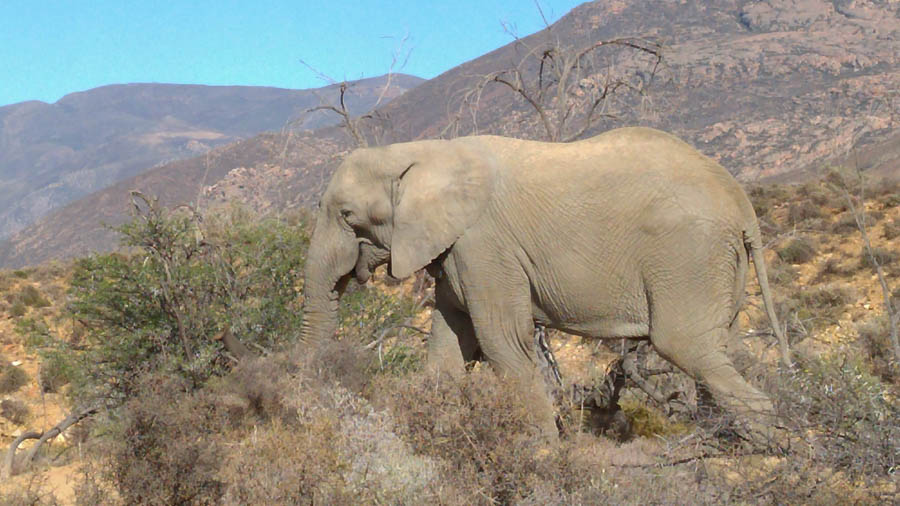
We were within 30 feet of this fellow

Looks small at this distance but wait until you get up close!
Did You Know?
Only grown up ladies and their babies live in the herds.
The daddy elephants leave the herd when they are 12 years old.
They fight with their tusks.
They eat grass and bark.
During the wet season they eat things low to the ground.
During the dry season they use their trunk to gather food from trees and bushes.
They suck up water into their trunks and shoot it into their mouths.
Elephants need lots of room to roam and eat. (Some of us think that this must mean they are not happy in the zoo or in the circus.)
They can run 24mph for short distances.

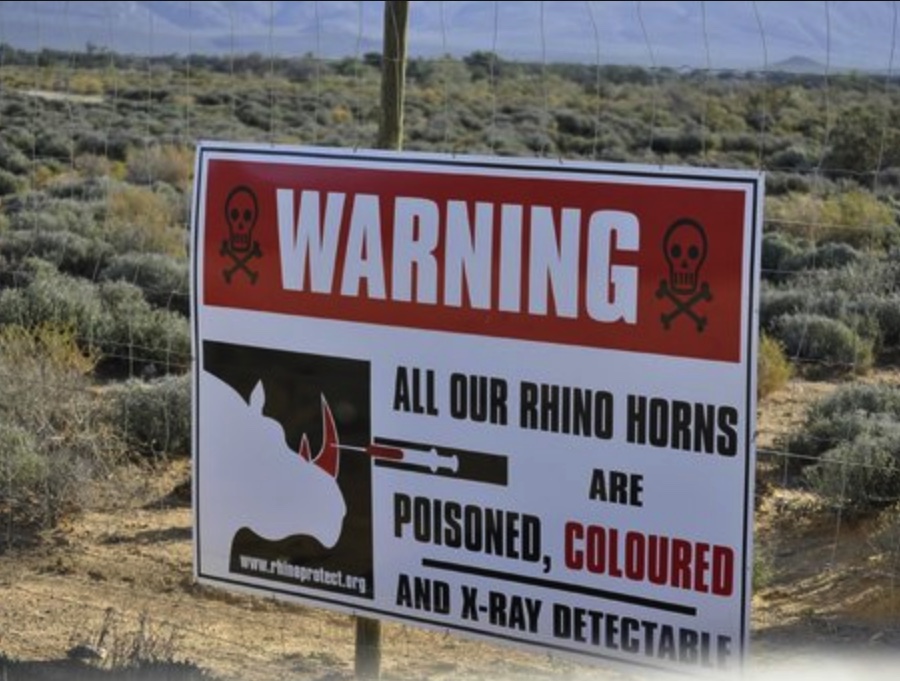
Did You Know? - Disperse Red 9 is a red powder that, when combined with water, will turn into a highly visible purple liquid. That liquid can usually not be washed off with water, soap or alcohol. The infusion device soaks a rhino’s horn under high pressure. Unlike other horns, rhino horns do not have a bony core but consist entirely of keratin. These fibrous scleroproteins are bundled up like very tightly pressed hair, and they form a very tough horn. Thanks to this fibrous anatomy, they can be soaked with the dye from inside without being noticeable from outside.
The liquid dye is not just dye. It is actually a mixture between the bright pink dye and an ectoparasiticide, which normally is used for protecting rhino against ticks. In this case, however, the purpose is not to protect the rhino against ticks but to poison rhino horn consumers. The purpose: Discouraging the (typically) Asian clients to buy the horn and to prevent poaching in the first place. If they consume RRP-treated horn powder, they will heavily suffer from nausea, stomach-ache and diarrhea. The effects are non-lethal but harmful to humans
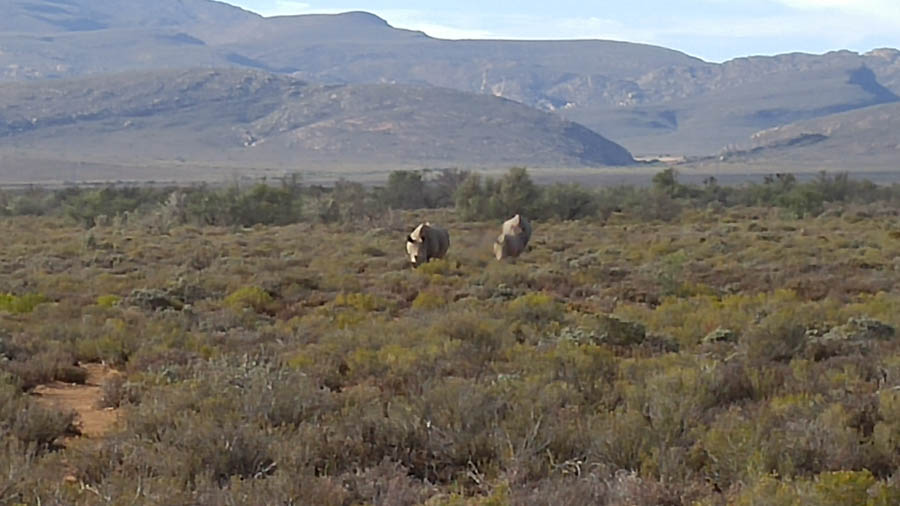
Here they come
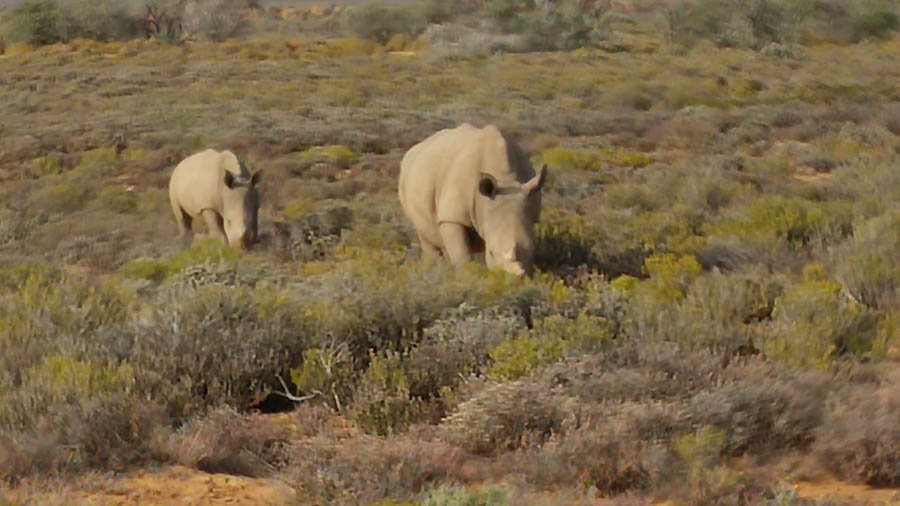
Coming up to see what is going on!
Did You Know? - These are white rhinos which are fairly rare. There is a father, mother and baby. We had to be very quiet while they passed in front of us. They can't see very well and can become aggressive
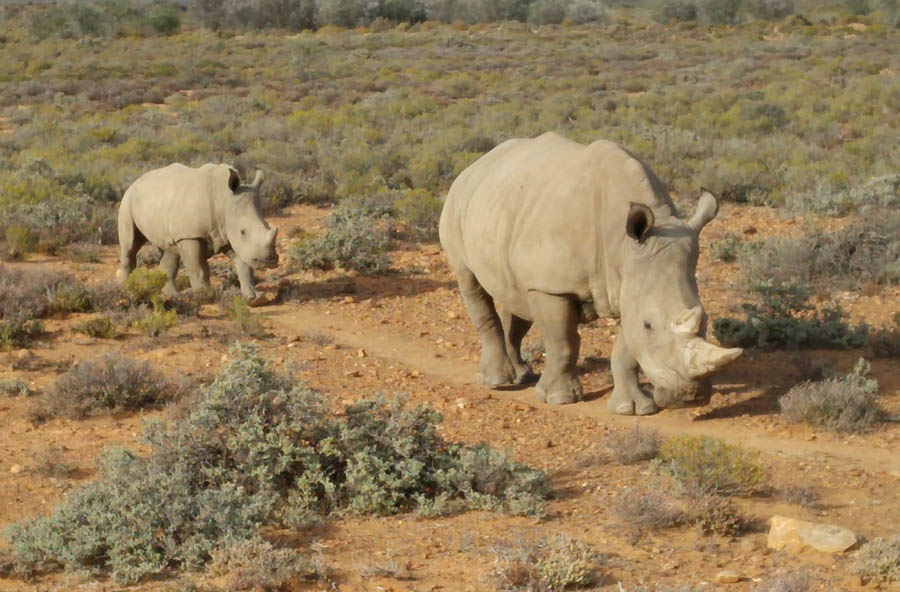
They are fearless
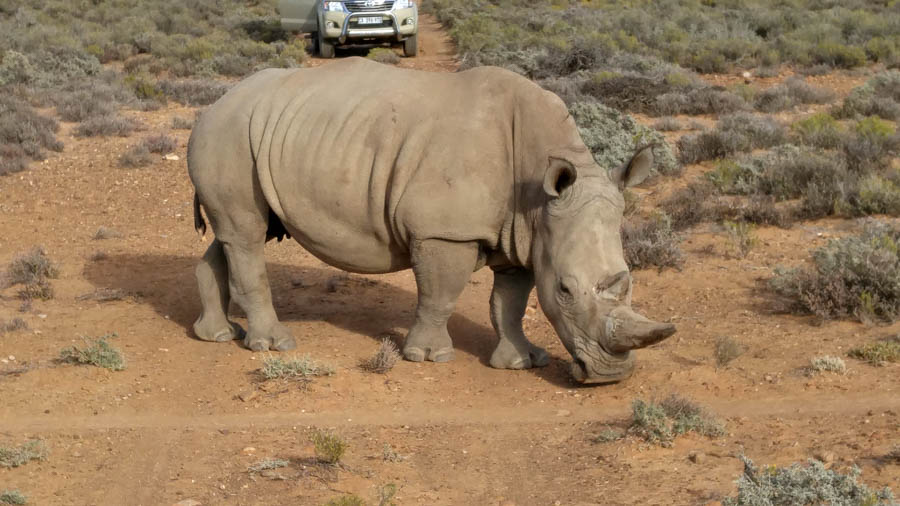
Within 50 feet

We will just tag along for a while
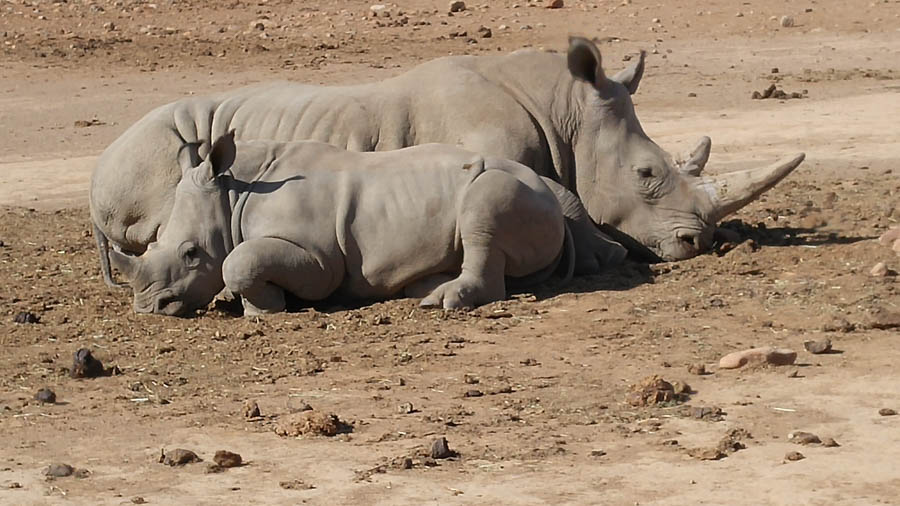
Enjoying the sun
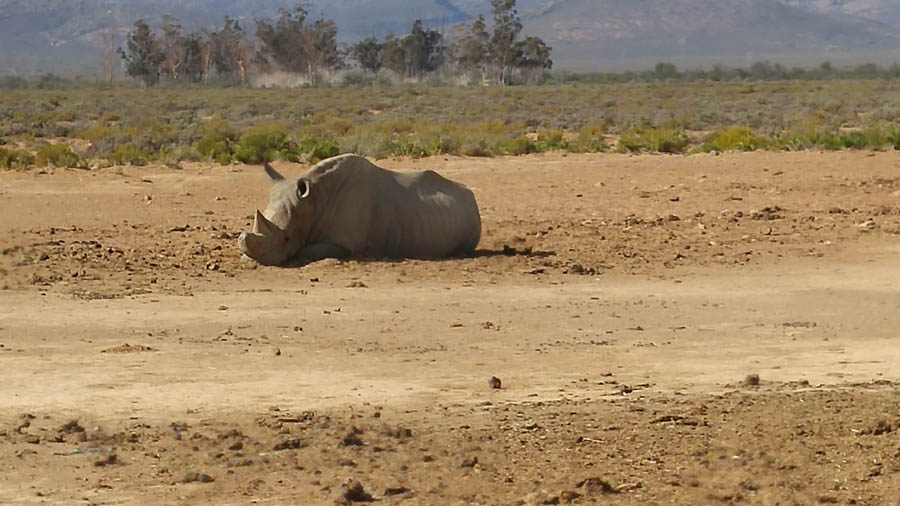
A little lonely... Perhaps a little run?
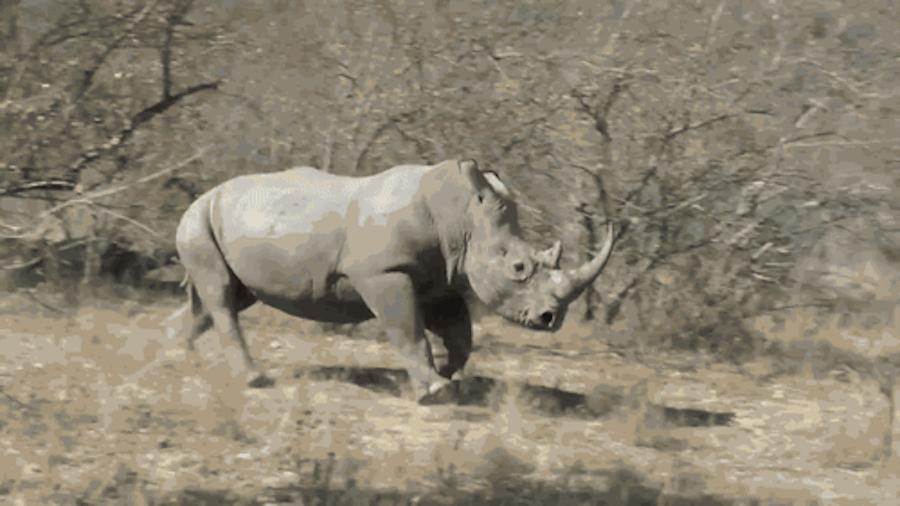
Oh dear... He is coming our way
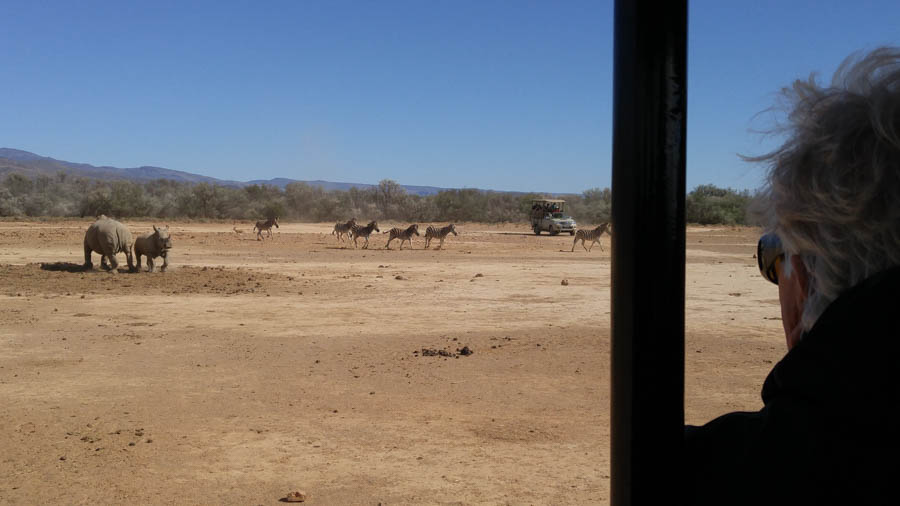
Several vehicles are in the area
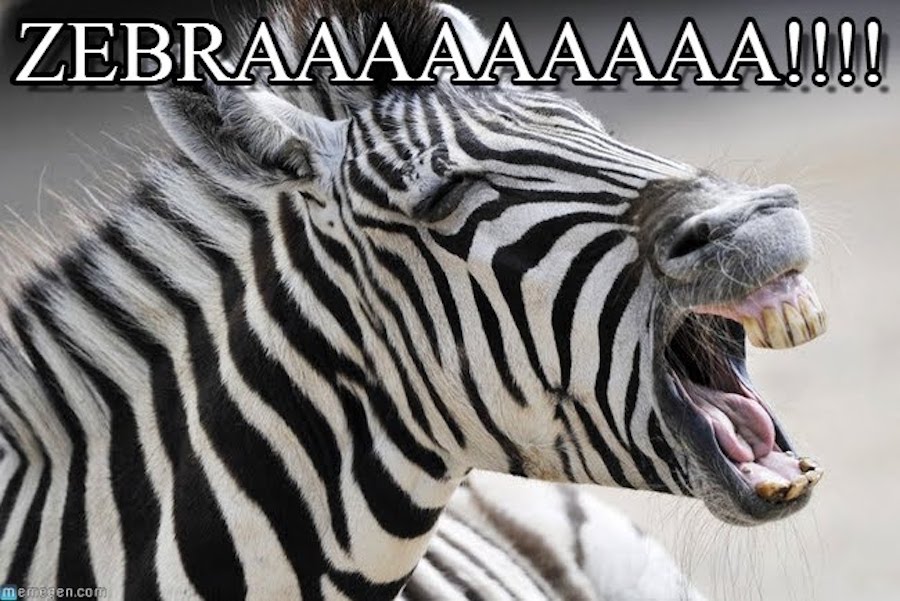
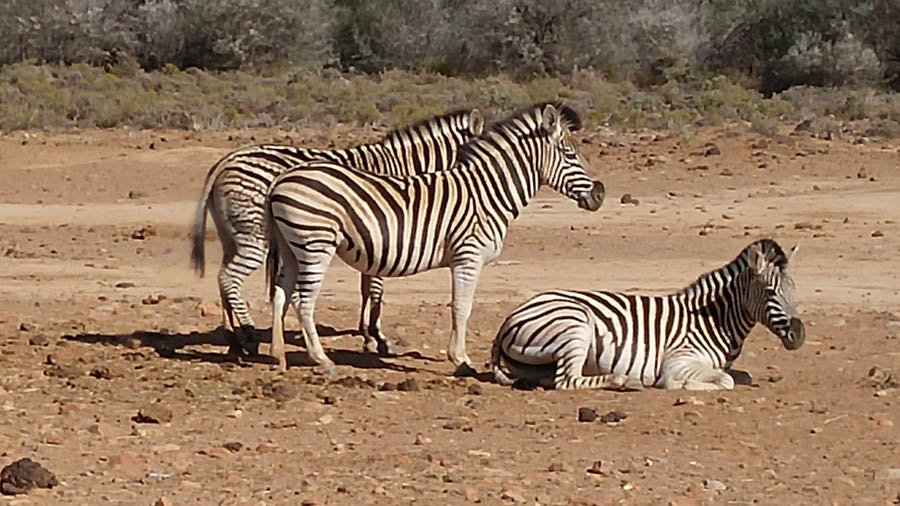
"We don't look fast do we?"
Did You Know?
There are three species of zebra: Grevy’s, mountain and plains, the latter of which is by far the most common. The plains zebra is divided into six subspecies; the mountain into two.
Zebras are very fast-moving animals, and can reach speeds of up to 65kmph when galloping across the plains. This is just fast enough to outpace predators such as lions. Foals can run with the herd within a few hours of birth.
A zebra’s stripy coat is thought to disperse more than 70 per cent of incoming heat, preventing the animal from overheating in the African sun.
It's thought that a zebra's stripes serve to help camouflage the animal in long grass, and distract predators. Recent research also shows that a zebra's stripes may have evolved to keep biting insects at bay - the monochrome pattern seems to throw off the visual systems of flies.
A zebra's stripes act like an equine fingerprint - each individual’s pattern is unique. Foals recognise their mothers by the pattern of their stripes, as well as by scent and call.
While Grevy zebra society tends to be fairly open, that of plains and mountain zebras is more tight-knit, with the animals living in harems of up to six breeding females and their young, with a dominant male. Each female has a place in the hierarchy. These groups are so close that if a predator injures one individual, fellow members will circle it and attempt to scare the intruder away with their teeth and hooves.
Like horses, zebras sleep standing up, and usually only when in the safety of a group.
For protection, zebra groups often come together in large herds, regularly mixing with other grazers such as wildebeest. As well as providing more eyes and ears to look out for danger, a large herd is confusing to a predator, making it harder to single out individual prey.
One of the most extraordinary phenomena in the natural world is the annual 1,800-mile migration of millions of zebra, blue wildebeest and other antelope between the Serengeti in Tanzania and Kenya’s Masai Mara in a constant search of food and water.
In Ancient Rome, Grevy’s zebra were trained to pull chariots at Roman circuses under the alias ‘hippotigris’ (‘horse-tiger’).
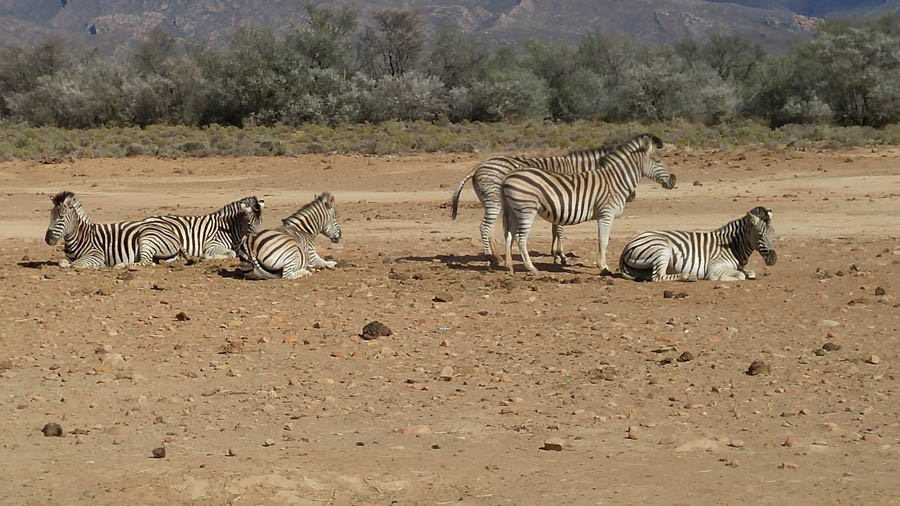
Resting in the open is a great pastime... They can see predators coming
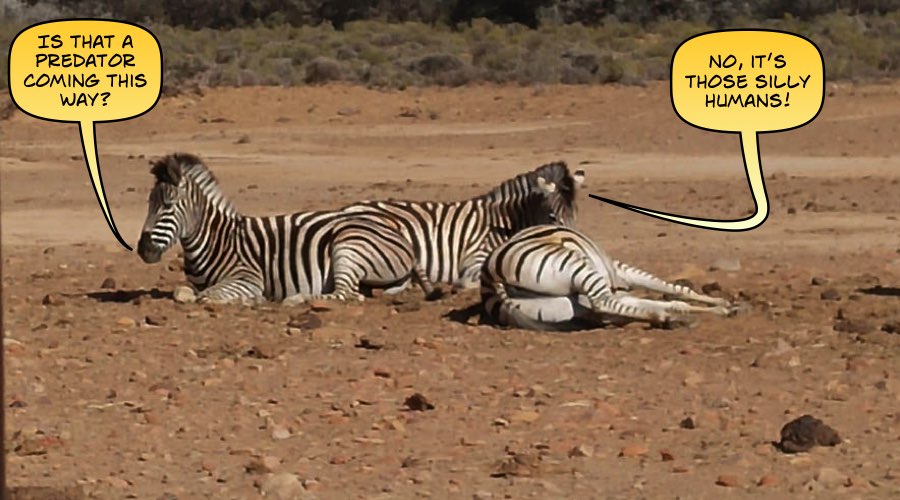

We slowly sneak up on them!
Did You Know? - Amongst the many features at the game reserve, the cheetah rescue and rehabilitation center is the lodge’s main attraction. Inverdoorn is the only game reserve close to Cape Town offering intimate encounters with cheetahs.*
Passionate about cheetah conservation, Inverdoorn provides guests the opportunity to be charmed by the grace and beauty of Velvet or Iziba, the lodge’s beloved tame cheetahs.

Getting a close up look!

"I am going to do what?"

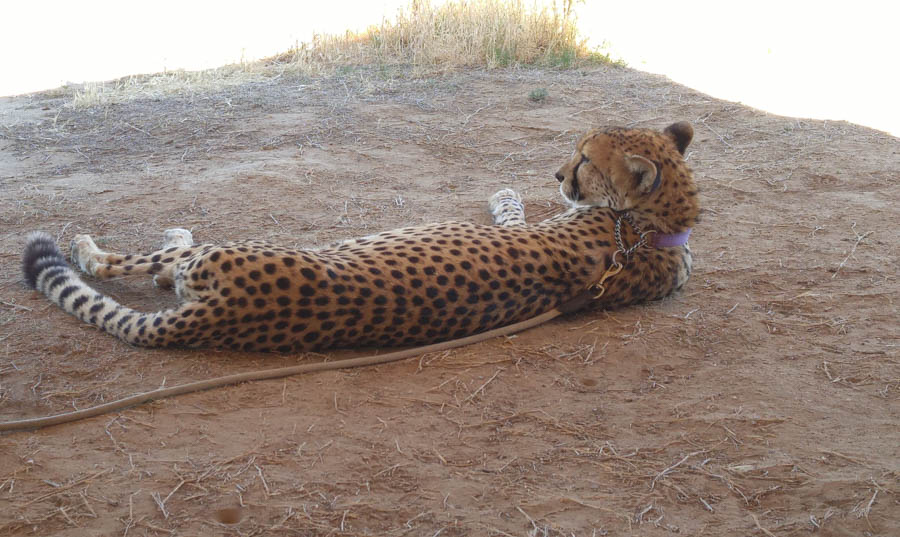
Looks like a house cat on steroids!
Did You Know?
Do not wear sunglasses or loose clothing that can flap in the wind.
Do not call or whistle at the cheetah.
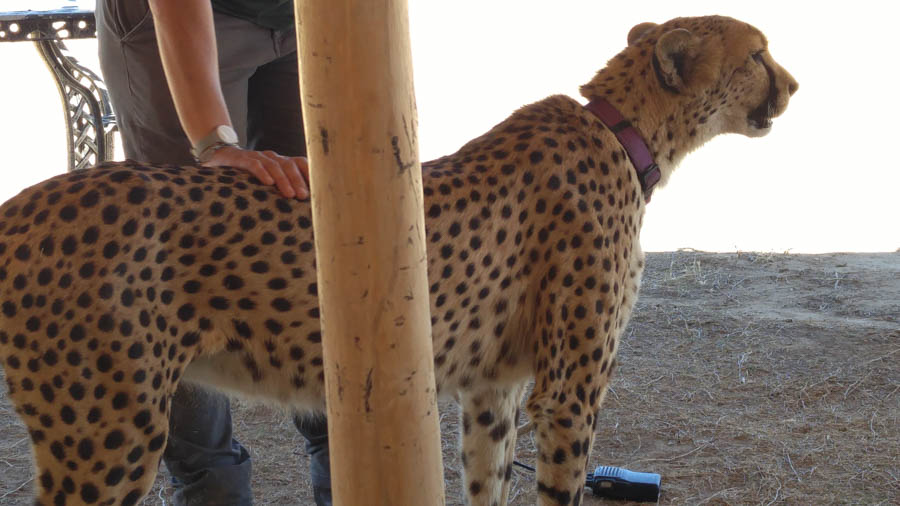
A beautiful animal

"I counted my fingers before and after petting her". She purred for me. Cheetahs don't purr automatically like house cats, cheetahs have to produce the sound if they're contented
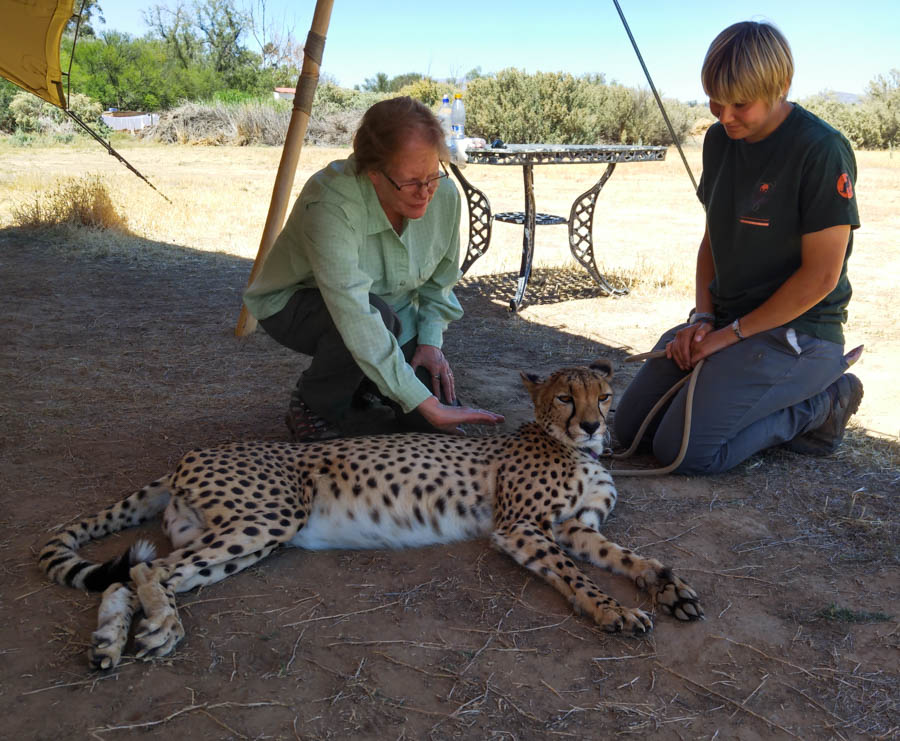
The handler provides careful instruction
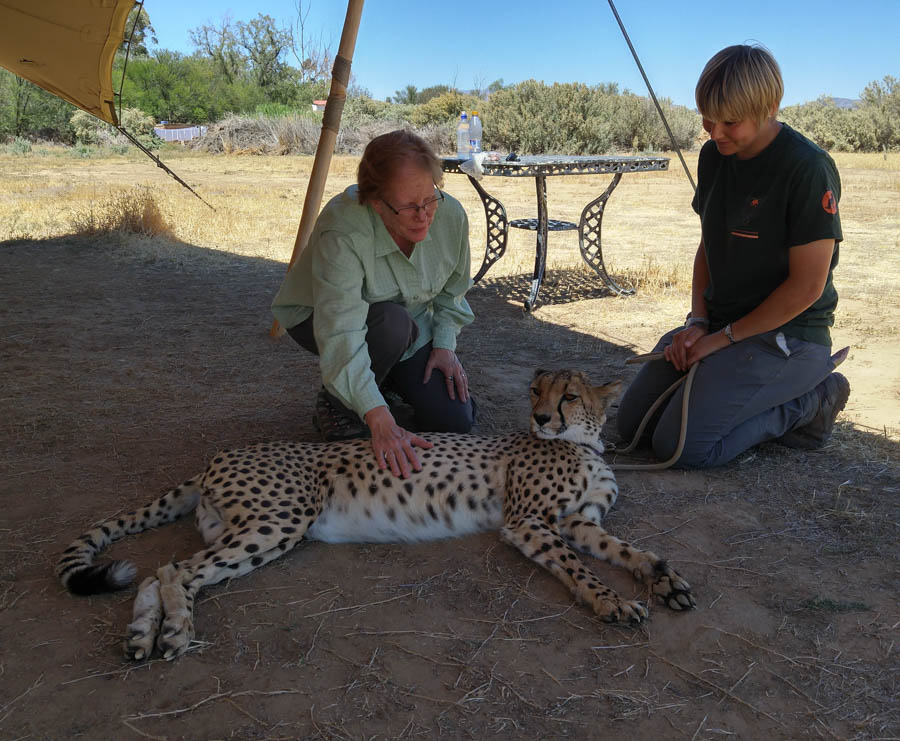
"Did she just meow?"
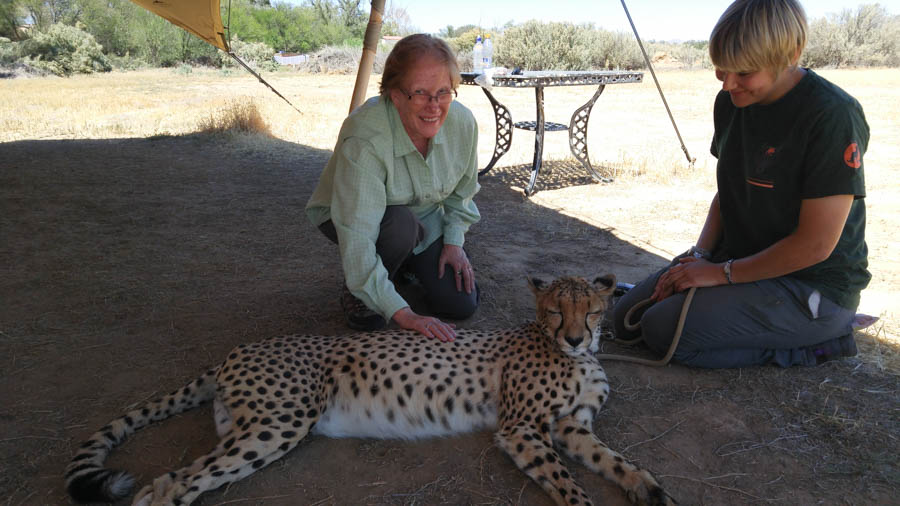
Two smiles for the price of one!
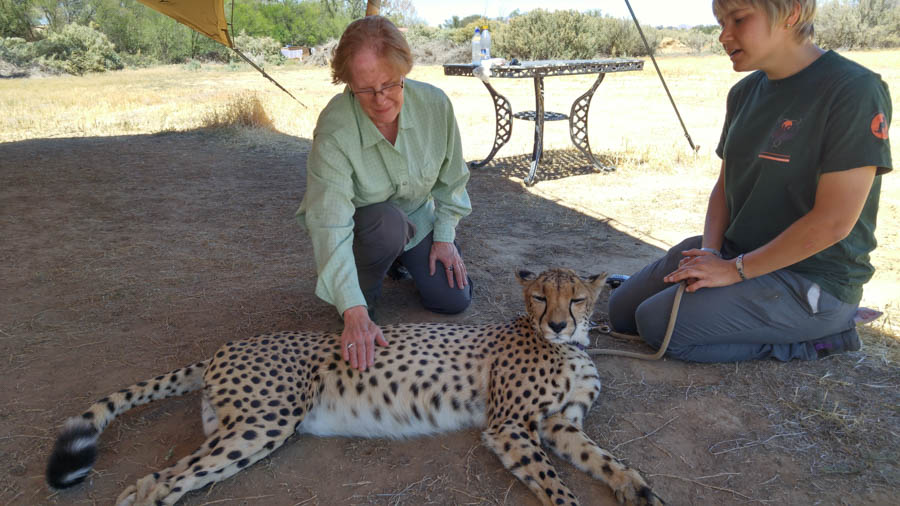
An awesome experience
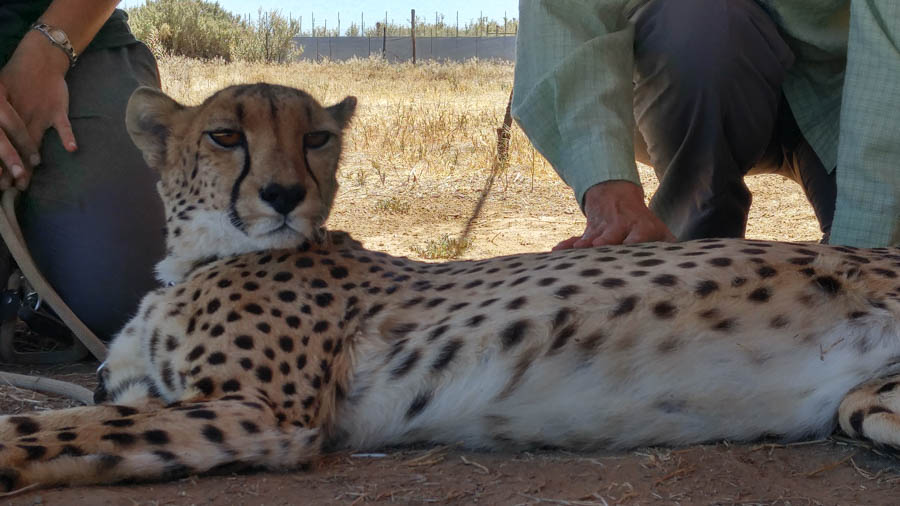
Built for speed
Did You Know?
The cheetah is the fastest land animal in the world. They can reach a top speed of around 113 km per hour.
A cheetah can accelerate from 0 to 113 km in just a few seconds.
Cheetahs are extremely fast however they tire quickly and can only keep up their top speed for a few minutes before they are too tired to continue.
Cheetahs are smaller than other members of the big cat family, weighing only 45 – 60 kilograms.
One way to always recognize a cheetah is by the long, black lines which run from the inside of each eye to the mouth. These are usually called “tear lines” and scientists believe they help protect the cheetah’s eyes from the harsh sun and help them to see long distances.
Cheetahs are the only big cat that cannot roar. They can purr though and usually purr most loudly when they are grooming or sitting near other cheetahs.
While lions and leopards usually do their hunting at night, cheetahs hunt for food during the day.
A cheetah has amazing eyesight during the day and can spot prey from 5 km away.
Cheetahs cannot climb trees and have poor night vision.
With their light body weight and blunt claws, cheetahs are not well designed to protect themselves or their prey. When a larger or more aggressive animal approaches a cheetah in the wild, it will give up its catch to avoid a fight.
Cheetahs only need to drink once every three to four days.
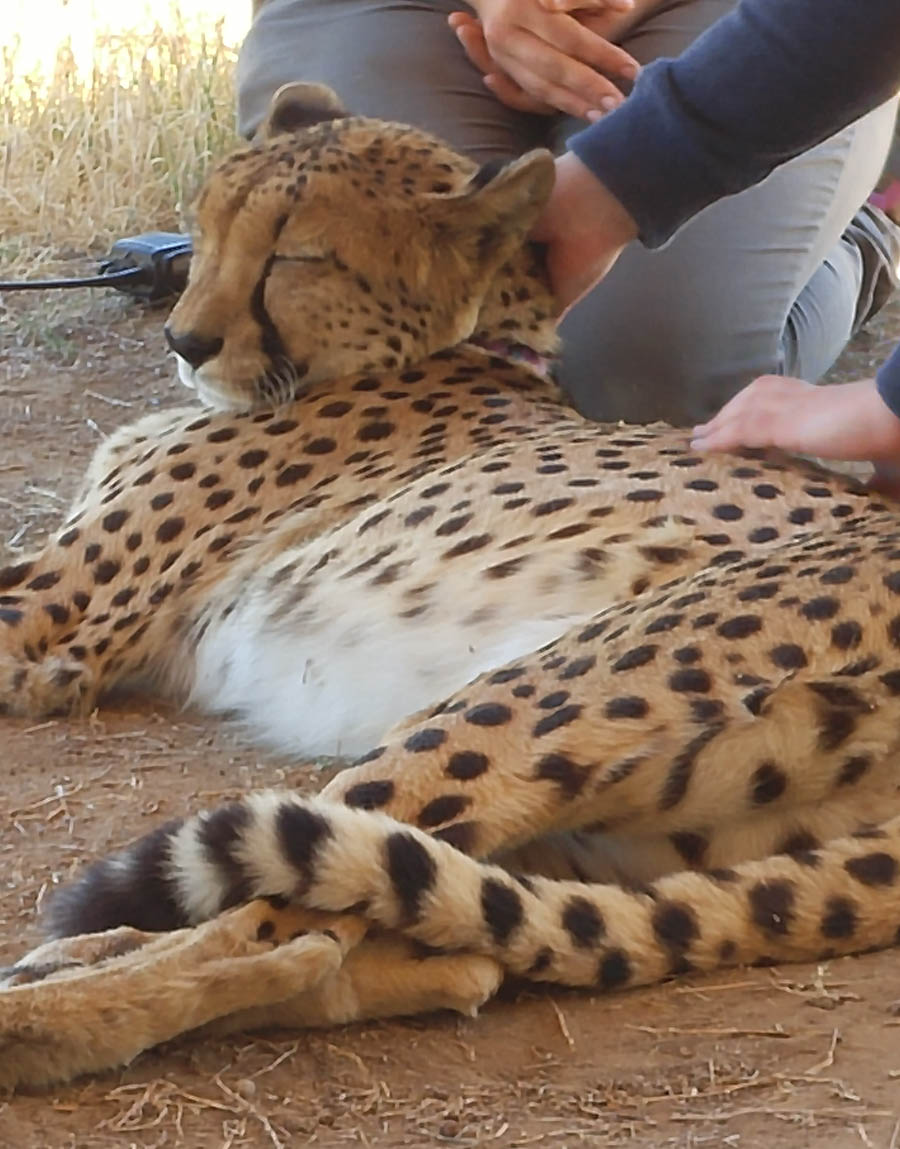
"I swear she was purring"
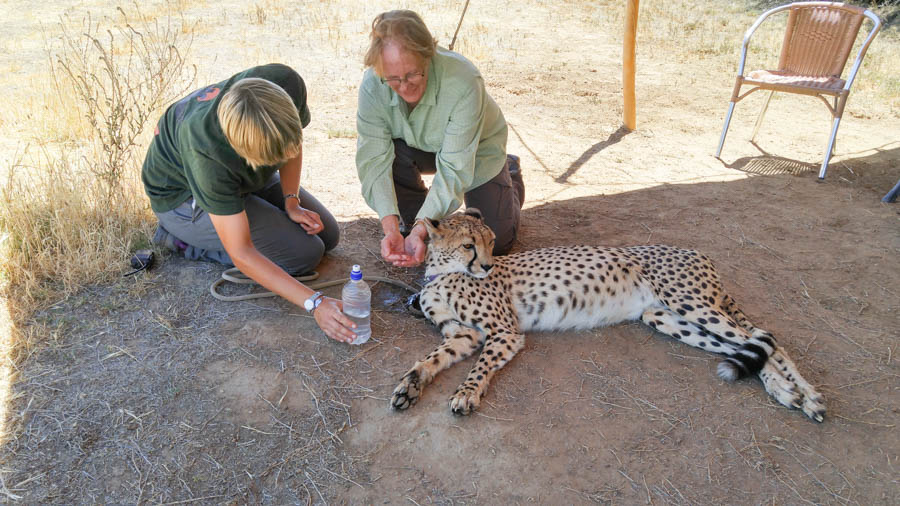
"How about a drink little girl?"
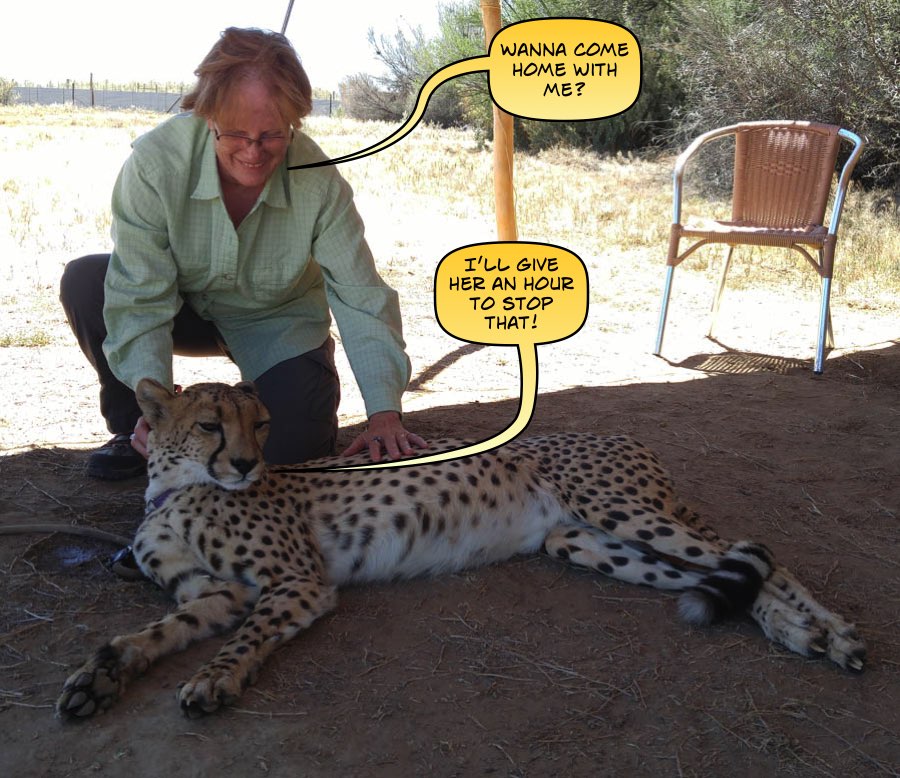
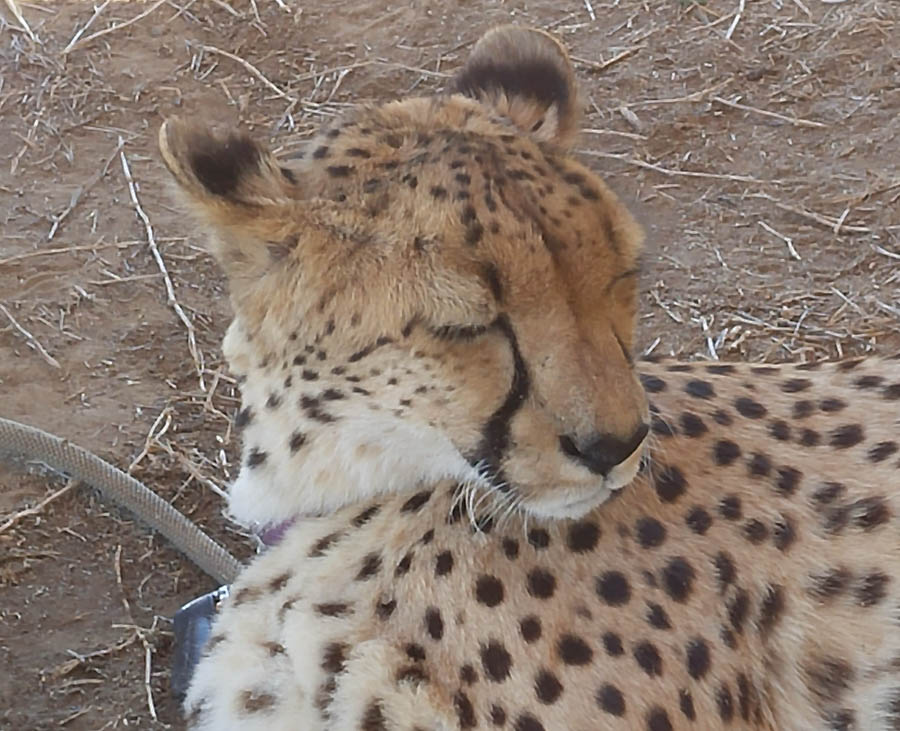
"Nap time!"
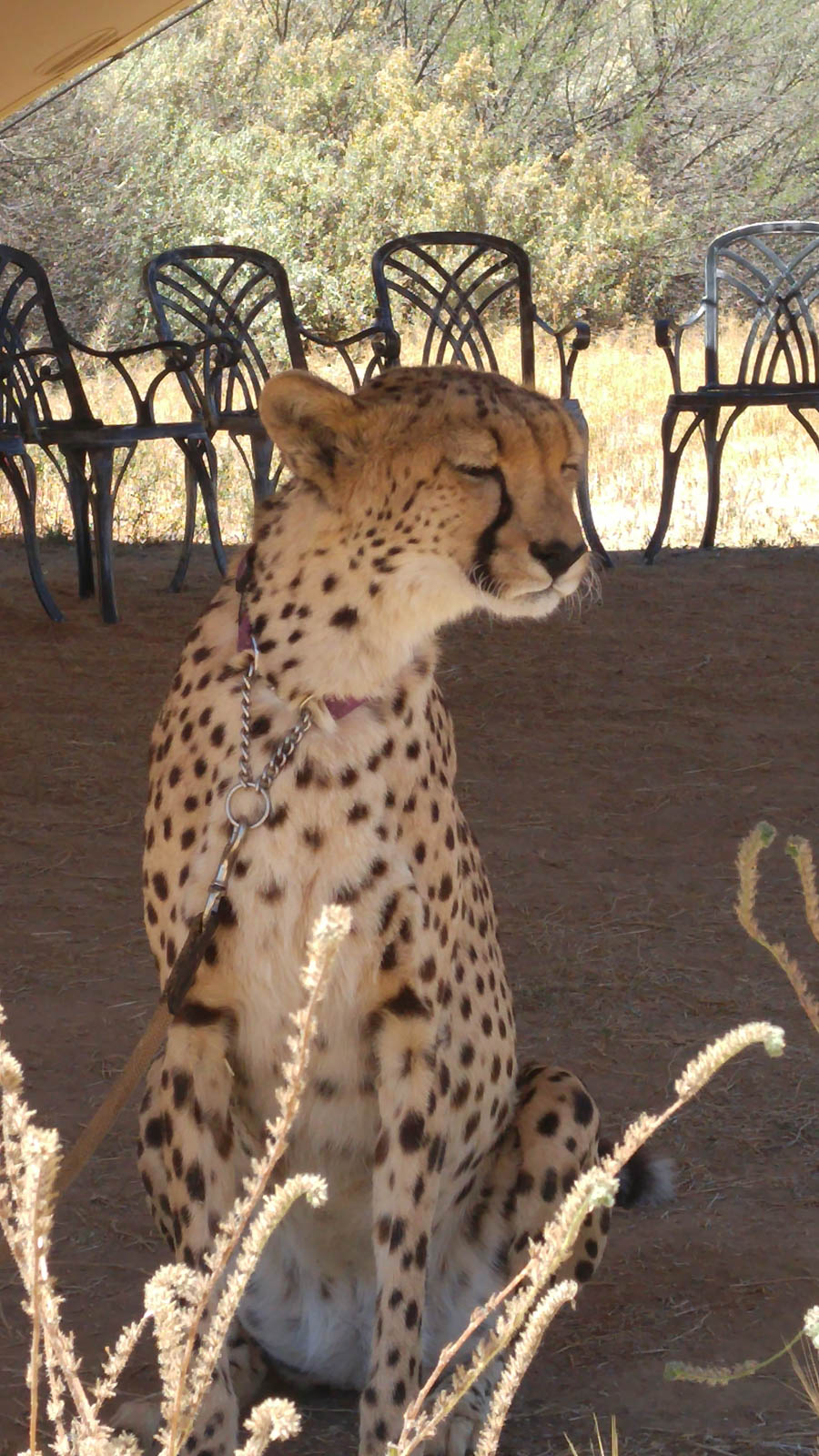
What a life...
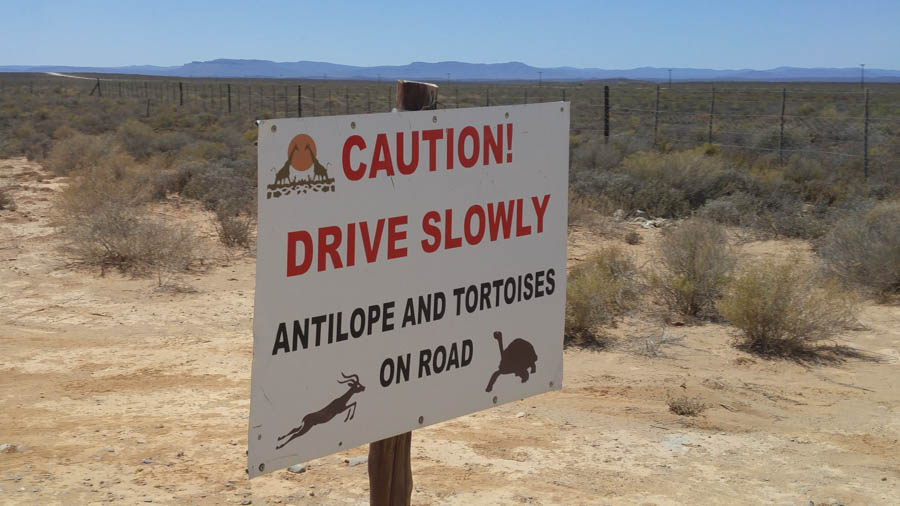
Goodbye reserve...
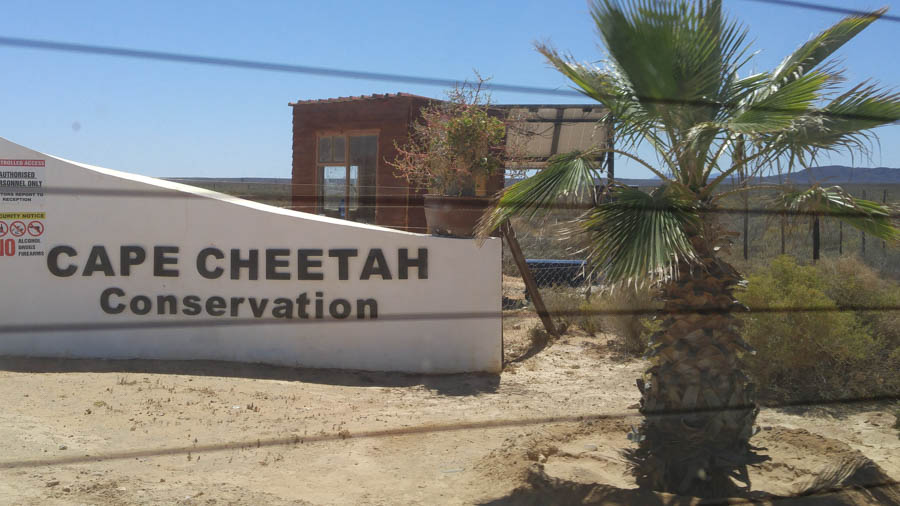
An amazing adventure


Heading to the coast... Two hours drive

The roads were pretty good all around South Africa


We are right on the harbor...

Totally modern!

Getting organized for the trip home

Nice digs

Will sleep well tonight

We are close to the port

We know where we are... The Cape Wheel is around the corner

The sun sets and home is a few hours away!

One last picture...

The clock tower says 6:49 PM

Goodbye Table Mountain

Oops... We forgot the night life!

Dinner be served!
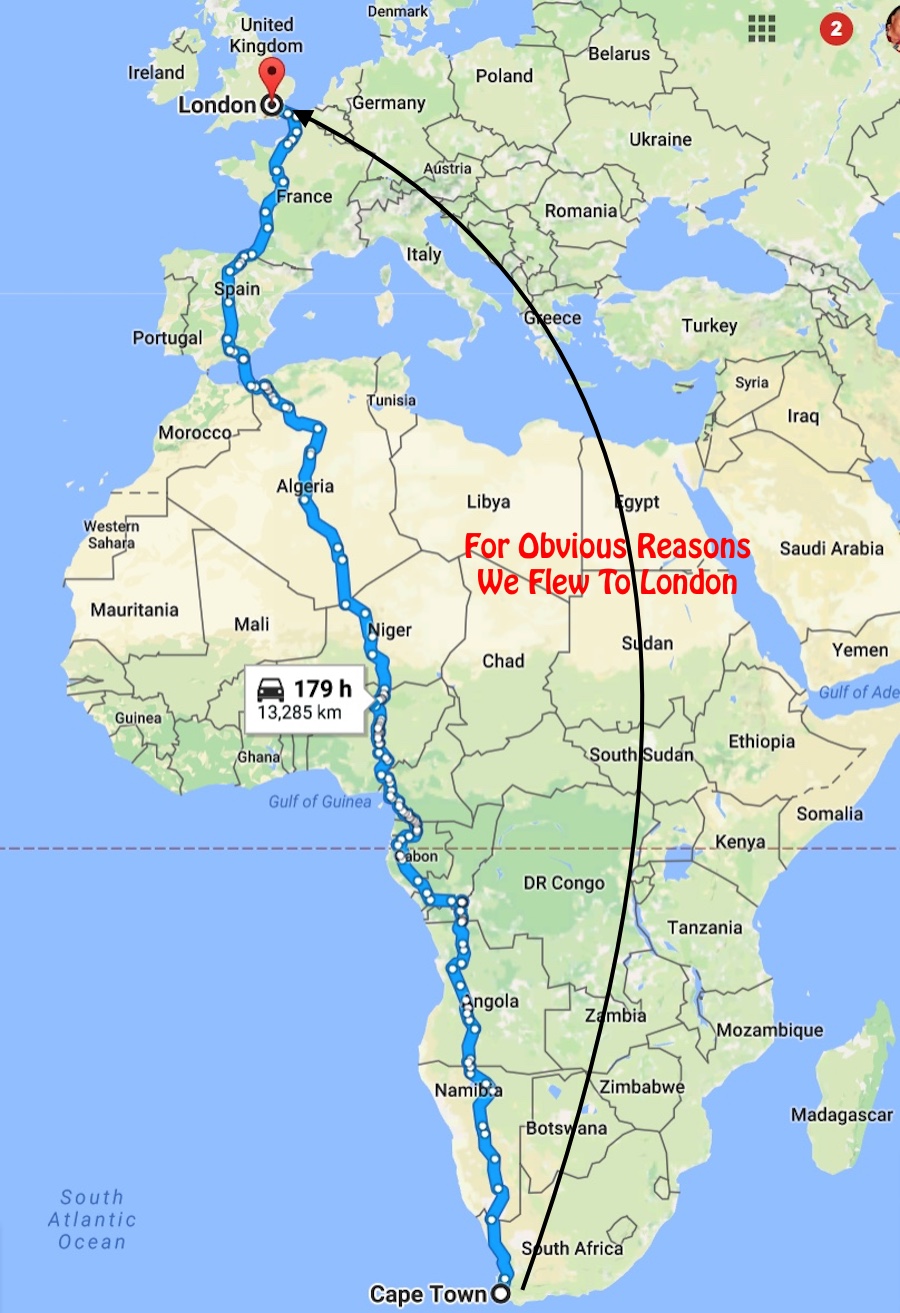
A great adventure....
